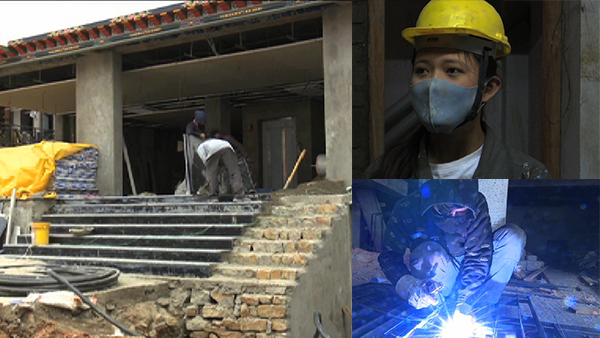 While the Build Bhutan Project (BBP) has come under close public scrutiny recently after it failed to implement the promised pay revision, it did help those who were laid-off from the hospitality and tourism sector to pull through these tough times after the COVID-19 pandemic hit the country.
While the Build Bhutan Project (BBP) has come under close public scrutiny recently after it failed to implement the promised pay revision, it did help those who were laid-off from the hospitality and tourism sector to pull through these tough times after the COVID-19 pandemic hit the country.
23-year-old Sonam Dema, who was dismissed from her work in the hotel industry soon after the pandemic hit the country last year is now working at one of the construction sites in the capital. She says dealing with the unforeseen challenges caused by the COVID-19 pandemic took a toll on her. After she lost her job at one of the hotels in Phuentshogling, she came to Thimphu in search of a new job. She applied for dozens of jobs but none were successful. So, when she was on the verge of giving up, the BBP came to her rescue.
“Without an income it is hard to survive on my own. My family is in Samdrup Jongkhar, and I have to bear my own expenses such as rent. Besides, I also have to spend some money on my siblings’ expenses. I tried everything to get a job but with the pandemic there weren’t many opportunities. Compared to my last job, the salary is better here but the work is also more demanding,” said Sonam Dema, a construction worker with the BBP.
Despite challenges, Sonam is still happy and gleefully carries out masonry works along with her friends at the worksite. She earns monthly salary of Nu 14,000, which she says is not a huge amount but certainly helps her to make ends meet. Like Sonam Dema, many others are earning income by working in the construction sector. Tashi Penjor, a freelance welder is one of them. He said the pandemic has been a blessing in disguise for construction workers like him. He said before COVID, landing a job in the construction sector was a rare opportunity.
“In the past, we were solely dependent on foreign labourers, and even though I had the interest and knowledge, it was hard to compete with the Indian workers. They were better than us in every aspect. And that’s because they had way more experience than us. Now, after the pandemic, I feel we have more opportunities than before. Mainly, because there is a shortage of physical labour now. If we continue getting works like this, I feel the experience will not only help us on an individual level but at a national level as well,” said Tashi Penjor.
Some other construction workers echoed his views.
“Compared to my old job, I am paid higher and on a timely manner now. I am delighted that even during the pandemic when many lost their source of income, we are unhindered,” added Tshewang Dorji, a construction worker in Thimphu.
The construction sector in the country was hit hard by the pandemic since its workforce mostly comprised of expatriate workers. But this prompted the government to take swift interventions to fill up the gaps created by the foreign workers in the construction sector including Build Bhutan Project. More such interventions are in the offing since the labour ministry plans to review Build Bhutan Project and collaborate it with TVETs in the country. Some private firms also focused on mobilising pool of workers to address the shortage.
Yeshey Dorji/Choni Dema/Pema Seldon Tshering





